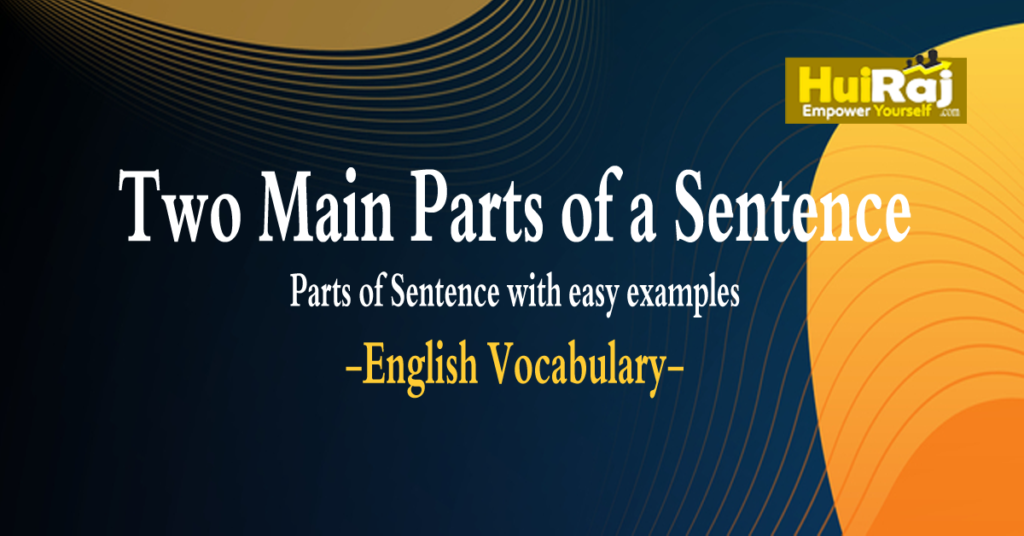We have already learned the FORMULAS of Present Perfect, Sentence structure of THE PRESENT PERFECT with examples in Step-14. We will learn here more about Present Perfect and Its all rules. The Present Perfect is formed by using have+verb in the past participle form. Study the following examples:
Present Perfect – Affirmative, Negative, Interrogative, and Negative Interrogative
| Affirmative |
| I have written a poem. He has written a poem. |
| Negative |
| I have not written a poem. He has not written a poem. |
| Interrogative |
| Have I written a poem? Has he written a poem? |
| Negative Interrogative |
| Have I not written a poem? Has he not written a poem? or Haven’t I written a poem? Hasn’t he written a poem? |
The negative is formed by adding not to the auxiliary (have/has ). The interrogative is formed by inverting the auxiliary and the subject. These forms are shown above.
Note that ‘Has’ is used with the subject in the third person and singular number and ‘Have’ is used with all other subjects. Note the use n’t in negative interrogative sentences. Not follows the subjects I,.we,you,he,she,and they but n’t precedes the subjects.
Rules of using Present Perfect
Present Perfect Rule-1
It usually refers to competed activities in the past time, the effect of which extends to and includes the present moment. The starting point of the period of time may not be mentioned. Further, let’s compare and mark the difference between the present perfect and the simple past.
Study the following examples:
- Ramesh has done his assignment.
- Sankar has studied hard.
- They have completed their work.
- Geeta has lost her key. (Geeta is still looking for the key.)
- Sangita has had a bad headache. (Sangita is still suffering from a headache)
But If we say:
- Geeta lost her key.
- Sangita had a bad headache.
The Simple Past Tense shows that the activities have no link with the present time. Geeta is no longer looking for her key. Sangita is no longer suffering from a ‘bed headache’.
Present Perfect Rule-2
Study the examples:
- They have lived here for 06 years. (Last six years)
- They have been in service since January 2001.
The use of ‘for’ shows a definite period of time and ‘since’ shows a point of time when the action began.
1999—————————2005———————————-2006——————- The work is likely to continue in the future.
Let’s consider an example-(i) They started living here in 1999. Suppose now it is 2005; they are still living here. The work is incomplete and it is likely to go on in the future. The second example shows that they are still in service. They joined their posts in 2001 and are still continue now in 2005.
But if we say:
- They lived here for six years.
- They were in service.
These examples show completed activities in the past.
Now, again study the following and note the difference in meaning between has gone and has been.
- Gopal has gone to Goa. (He is on his way to Kashmir or, he is still in Goa)
- Gopal has been to Goa. (He is no more in Goa. He has already returned.)
Present Perfect Rule-3
The Present Perfect is generally used for the writers who are alive and the Simple past is used for the writers who are dead.
- Radhanath Routhray has composed volumes of poems. (The writer is still alive)
- Radhanath Ray composed several poems. (The writer is dead)
Present Perfect Rule-4
Present Perfect is used when the action or activity has just need.
See the examples:
- Brother: Where have you been Ganesh?
- Ganesh: I have been to the market. (Now he has just returned)
- Suresh: What’s the matter with the room, Sister?
- Sister: The room hasn’t been cleaned for months. (Now she is cleaning)
Ganesh's action has just ended. Likewise, the state of uncleanliness of the room has ended just now.
Present Perfect Rule-5
The Present Perfect Tense is usually used in newspaper headlines, letters, and radio and television reports.
See the examples:
- The robbers have looted a bank.
- I have received a letter from my friend.
- The radio has announced a cyclone.
Present Perfect Rule-6
The tense is used for the expressions for the first time, for the second time, for the third time, for the last time, the only time etc and for the adjectives in the superlative degree.
- It is the first time that Priya has cooked meat.
- It is the best book that I have ever read.
- It is the only chance that they have got in life.
Present Perfect Rule-7
Adverbs just, never, ever, always, lately, recently, already, yet, often are usually used in the Present Perfect Tense.
- The bus has just left.
- She has never cheated anyone.
- Have they ever ill-treated you?
- My best friends have always/often helped me.
- We have been busy lately.
- Mr. Patnaik has left Cuttack recently.
- Mr. Patnaik already left home.
- Has the postman come yet?
- Hasn’t the postman come yet?
Note: ‘Already’ is used in affirmative sentences and ‘yet’ is used in negative, interrogative, and negative interrogative sentences
Present Perfect Rule-8
The expressions-this morning, this afternoon, today, this week, this month, this year, etc. Show that the period of time is not complete at the time of speaking.
- Mohan has rung me up three times this afternoon.
- Rajesh has written ten letters this morning.
- I have grown vegetables in my garden this year.
compare:
- The officer hasn’t come this morning. (The morning is still there)
- The officer didn’t come this morning. (The morning is already over)
Exercise-8
Complete the sentences using the words given in the brackets.
Mark the example:
- Promad : Have you ever been to Konarak?
Sankar : Yes, I have been to Puri Konarak.(twice)
- A. Since when have you lived here?
B. We ______________.(since 1993)
- A. What have you done with your old motor bike?
B. No, I _____________.(already , sell)
- A. Have you ever play cricket?
B. No, I_____________.(never)
- A. How many letter has Mithun written?
B. He _______________.(ten, this morning)
- A. Has it stopped raining ?
B. No,____________.(not yet)
A. Has Rabin left Bhubaneswar?
B. Yes, Rabin___________.(already)
A. Where is Amit?
B. She__________.(just/leave/for school)
A. Is it an interesting story? You say you read it
B. Yes. It _________.(the most interesting story/i/ever/read)
A. Has your grandmother left the country?
B. Yes, ____________(already, leave)
Exercise-9
Make sentences in the Present Perfect using the words given. You may use some words, if necessary, to complete the sentences.
Mark the example:
(i) ever/you/drive/car?
Answer: Have you ever driven a car?
(ii) recently/he/leave/this place.
He______________.
(iii) never/we/see/ghost in life.
We ______________.
(iv) Yet/finish/home-task/Ritika.
Has_______________?
(v) Yet/leave/for home/Manisha.
Hasn’t ____________?
(vi) meet/you/Gopal/this morning.
Have you__________?
(vii) the most/it/exciting film/I/ever/see.
It_________________.
(viii) the first time/Goutami/cook meat
It is______________.
Learn more about Present Perfect Tense@Englishclub
***
“The person who wins is the person who wants the most”
www.huiraj.com

